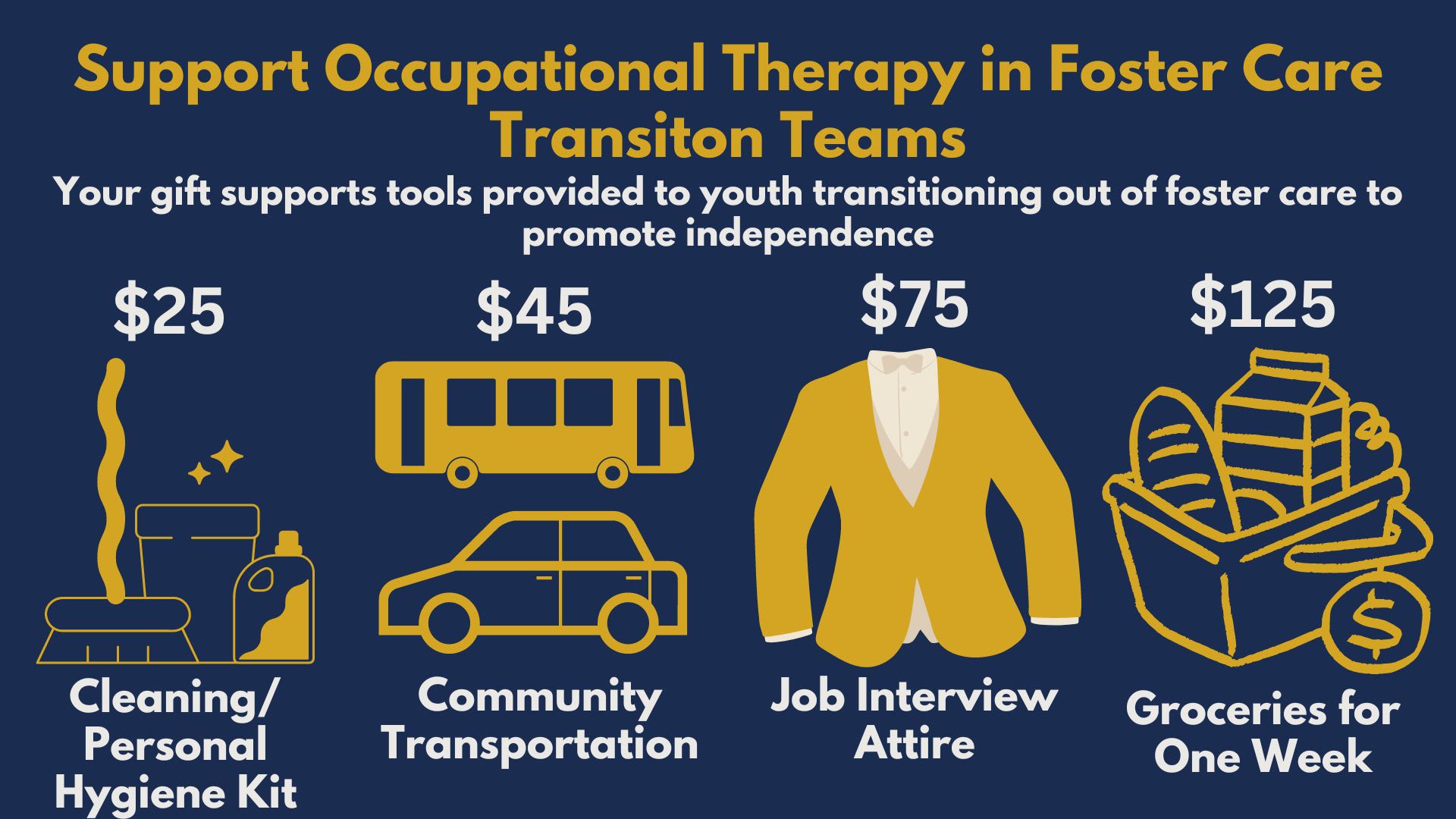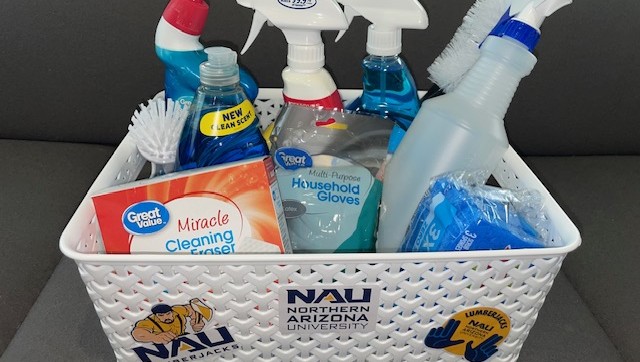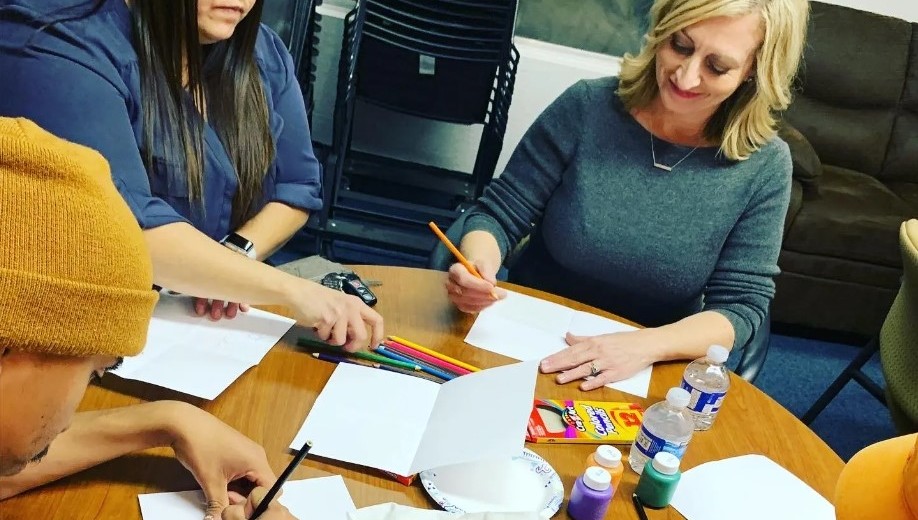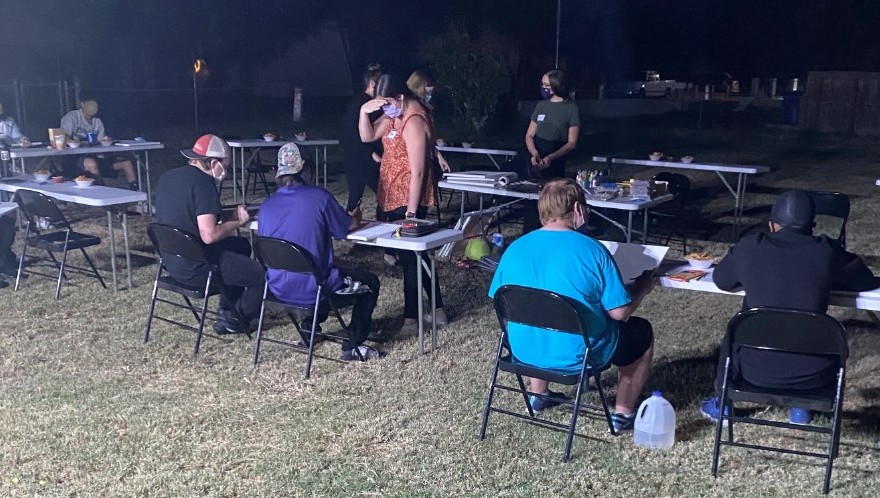Occupational Therapists on Foster Care Transition Teams
Occupational Therapists on Foster Care Transition Teams
The NAU Department of Occupational Therapy is conducting a research project on the impact of occupational therapy services focusing on young adults who are transitioning out of the foster care system titled “Occupational Therapists on Foster Care Transition Teams”. Through this project, young adults who have previously spent time in the foster care system will work with a licensed occupational therapist one-on-one to improve their independent living skills. During these occupational therapy sessions, the therapist can work with the young adult on a variety of skills, some being meal preparation, health management, employment, self-care and money management. Your support can help cover the costs associated with running this program and provide resources for the young adults transitioning out of the foster care system.

Young adults who have aged out of the foster care system face many challenges, disparities, and inequity throughout their lives, exacerbated by a history of trauma and instability. Lack of preparation and support for young people transitioning from foster care to independent living results in worse life outcomes than their same-aged peers. Research reports 31-46% of youth transitioning from foster care experience homelessness at least once before the age of 26, compared to 4% of their peers. They are twice as likely not to have earned a GED or high school diploma by age 21; by age 25, only about one-third have attended college, and at 29, only one-fourth have earned a degree or certificate. At age 24, as little as 60% will report obtaining gainful employment, and on average, earn less than half of their same-aged peers. Substance dependence is also more common among youth aging out of foster care compared to their peers. While behavioral health disorders are four times greater for foster care youth than their peers, 25% stop receiving outpatient mental health services and 11% stop psychotropic medications due to cost after discharging from foster care. Access to individualized occupational therapy services will better prepare these youth for their transition to adulthood, will influence their economic and educational opportunities, and elicit practical changes to an antiquated foster care transition system that simply is not working.
Learn more about NAU Occupational Therapy by visiting https://nau.edu/occupational-therapy
$25
Cleaning/Hygiene Kit
$25 supports the cost of creating a cleaning or hygiene kit for the transitioning youth
$45
Transportation
$45 supports transportation for the transitioning youth to occupational therapy sessions, community engagement events, and more
$75
Job Interview Attire
$75 provides interview attire for one life skills course participant
$125
Groceries for One Week
$125 will cover the costs for the transitioning youth to purchase groceries for one week





